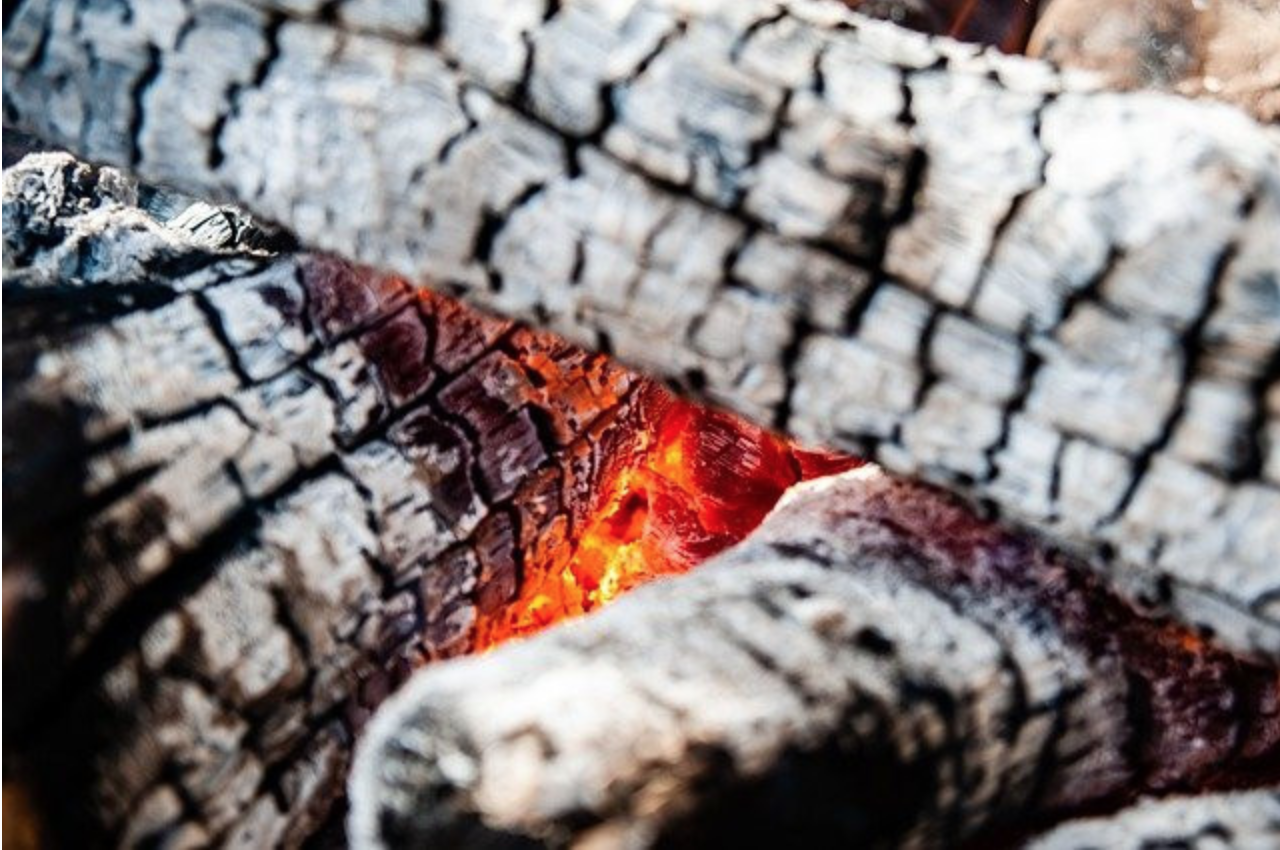If you’re an avid gardener, chances are that you’ll do just about anything to keep your precious plants alive and healthy. Many people try fertilizers to help their plants grow, but find that it doesn’t always work and may sometimes cause more harm than good.
Composting is a good route to go and a great way to keep your garden full of life. Believe it or not, a part of composting involves using firewood ash. At first glance, it might not sound as if it’s something that you’d want to put in your garden. But firewood ash provides your plants with nutrients that they may not be able to get anywhere else.
We have been using our wood-burning fireplace a lot this winter and keep trashing the firewood ash. I wanted to know if I could use the ash instead of just trashing it.
Using Firewood Ash in Your Garden
Unbeknownst to many, firewood ash is a great source of lime and potassium, both things that help plants thrive. It’s also a great way to boost your soil’s pH levels.
Although firewood ash is good for your plants, it’s important to use it correctly. Be sure that you spread it around in your garden in small amounts and that you mix it in with the rest of your compost.
Ash and PH Levels
If you are planning on using the firewood ash to adjust your soil’s pH, make sure that you know its current levels beforehand. Otherwise, you may end up raising the pH level to the point that it is too high and may kill your plants.
Be sure that you don’t use ash in your garden while you plan on seeding. This is because the pH levels in your soil need time to change, which means that you’ll want to make sure that happens before you start planting new seeds.
If you use too much firewood ash, it could end up burning your plants due to the large amount of salt and lye that it produces when it gets wet.
Not All Ashes Are Created Equal
The type of wood that you burn also affects just how beneficial the ash will be for your plants.
For instance, ash from trees such as maple and oak tends to be more nutritious for your plants. While ash that comes from trees such as pine or fir will have fewer nutrients in it.
Another thing to keep in mind when using firewood ash in your garden is to be sure that the wood you are using hasn’t been previously pressure-treated and doesn’t contain other types of materials, such as paint and cardboard. These extra materials could harm your plants.
When barbecuing or using a fire pit, don’t collect any of the ash that comes from coal or fake logs, as this will add no value to your garden.
If you end up having a lot of leftover ash, don’t feel as if you have to use it all at once. Ash can easily be stored to use throughout the year, working best when it’s added in between layers of compost.
When Not to Use Firewood Ash
As mentioned earlier, firewood ash makes soil less acidic, but if your soil already has a high pH level, you could end up doing more harm than good by spreading ashes throughout your garden.
Another situation in which you won’t want to use firewood ash is if you’re growing blueberries, strawberries, potatoes, parsley, lettuce, or asparagus because these plants love acid.
Video Summary: Using Wood Ash In Your Garden – Benefits And Dangers
The video below from Country Living Experience goes over the key benefits and dangers of using wood ash. The video serves as a good summary of what we presented above.
Other Uses of Firewood Ash
While your garden may enjoy the many benefits that firewood ash has to offer, there are other aspects of your home that may benefit from it as well.
Use it as Pest Control
If you find yourself dealing with a pest control issue, for example, firewood ash is a great way to deal with the problem. You can easily eliminate common garden pests such as snails and slugs with ash due to the high salt content it contains.
To keep these insects away from your garden, simply spread the firewood ash at the base of the plants. But always keeping in mind which plants you should not add ash to.
If it rains, but the pest problem remains, you may want to add more ashes as the rain may wash them away.
Use it as a Booster for Your Lawn
Those who find their lawns have been a bit lackluster lately may also benefit from firewood ash. The lime and potassium in the firewood ash is great for any lawn that needs a boost to help it grow.
Firewood ash works in almost the same way that fertilizer would, so be sure not to add too much of it to your lawn. Experts suggest using 10 to 15 pounds of ashes per 1000 square feet.
Use It as a Cleaner
Wood ash can also be used as a cleaner and is a great way to clean glass and metal. All you need to do is form a paste by combining the firewood ash with a little bit of water. The paste will then be abrasive enough to use on pots and pans that may have grease stuck to them.
As with sawdust, firewood ash can also be used to clean up any spills. This is because ash has absorbent properties that will easily take care of any messes. If you’ve spilled something on your clothing or sheets, firewood ash can also help absorb the spill so that your clothes or sheets don’t get stained.
Use It as an Alternative Fire Extinguisher
Firewood ash can also act as a fire extinguisher when you have no other option. If a fire breaks out or you need to put out a campfire but don’t have water or an extinguisher handy, firewood ash can easily suffocate the flames.
However, when using this method, be sure that you have put out all embers so that the ash can’t reignite.
Use it to Prevent Slipping on Ice
If you live in an area where it snows often, firewood ash can keep you from slipping on sidewalks or driveways. Much as salt works to melt snow, firewood ash can provide you with traction when walking over a particularly slippery spot.
Final Thoughts
As you can see, firewood ash is extremely beneficial and an environmentally friendly way to keep your garden and lawn healthy while also keeping away any unwanted pests. The next time that you host a bonfire, be sure to collect any leftover ash to start sprucing up your yard!
Related Posts:




